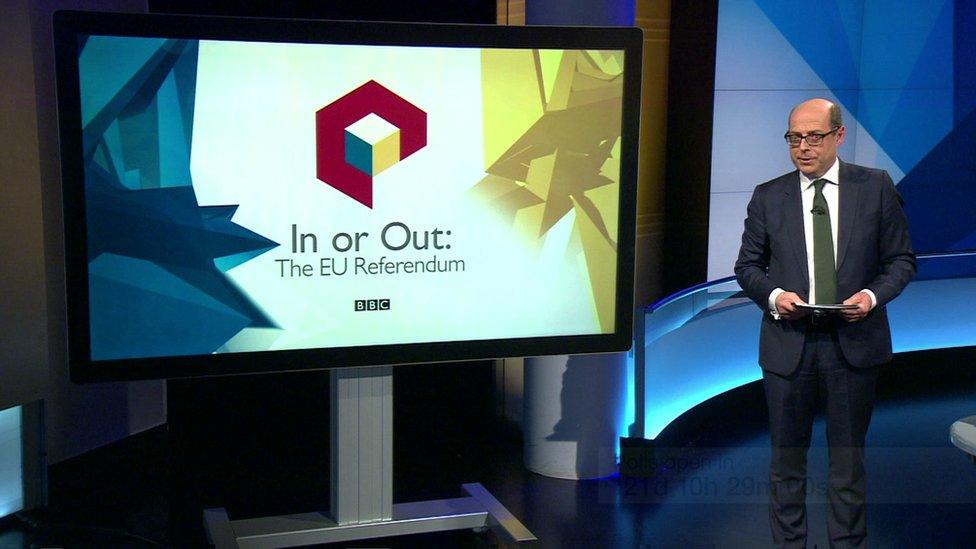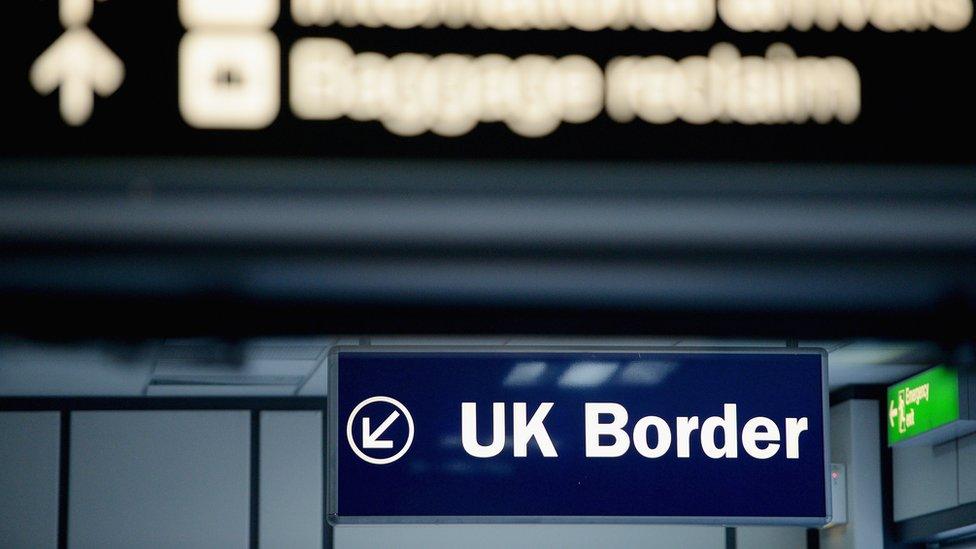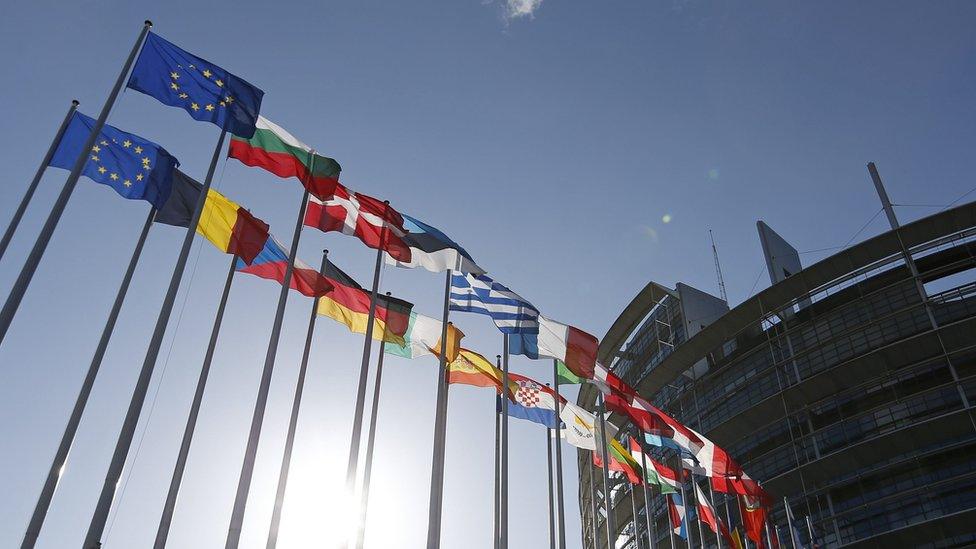Three key EU referendum questions
- Published

I don't know enough to decide. That is the cry you hear again and again if you ask people how they'll vote in the referendum on the UK's membership of the EU. Even political trainspotters like me would be hard-pressed to spell out exactly what remaining in the EU or leaving it would mean.
That's why we are all on a shared journey in which we should not look to "experts" to deliver us the "facts".
Like all big decisions this will be a judgement based on asking the right questions and accepting that the answers will often be based on predictions of what the future might - note that word "might" - look like.
That's what I tried to do on last night's BBC One special - In or Out: The EU Referendum.
We examined three key questions: what impact would staying in or getting out have on immigration, jobs and sovereignty - i.e. on our ability to control what happens in our world?

Immigration and jobs are at the heart of the debate about the UK's EU membership
My aim was to challenge those who had made up their minds so as to help those who have not.
I asked each guest to be honest about the downsides of their argument.
So, would those who want to stay in the EU admit that that means the UK could not control immigration from Europe? But would those who want to get out admit that if they stop people coming from the EU then British people might be stopped from moving to Spain or France or Germany to work?
Listen, judge and question
What's more, if the UK ends what's called the freedom of movement of people it might also find that the freedom of movement of goods, services and money - the things we buy and sell - might be stopped too.
Or on the question of jobs would the Remainers admit that the UK would carry on being a highly successful economy outside the EU that would form trade agreements with it just like the US or Canada have?
On the other hand would the Leavers admit that those new trade deals could take many years to negotiate and might not give full access to the EU's single market? So, British trade could be blocked by EU regulations or tariffs we would be unable to influence.

Sovereignty will be a key area of discussion in the run-up to the EU referendum
The biggest questions of them all, and the reason why Britain's relationship with the EU has created deep political divisions for decades, surround sovereignty.
That's not a word used by many who are not absorbed by politics but the idea that it matters who is in control of the decisions that affect our lives is one that many people care about.
Will those who want us to stay in admit that we inevitably lose some sovereignty - lose a bit of control, in other words - by being in a 28-member club in which we can be outvoted?
But will the Outers concede that the sovereignty they hope to regain could come at the price of losing power to influence decisions taken by that club?
Would, in other words, the UK on its own be able to negotiate with Vladimir Putin or Iran, or to combat climate change?
These questions may not have answers that are "true" or "false". They will require you to listen and judge and question some more.
We've got four months to do it.
Then you will have to decide.
Nick Robinson is a presenter on BBC Radio 4's Today programme and is a former BBC political editor.

Read more:
